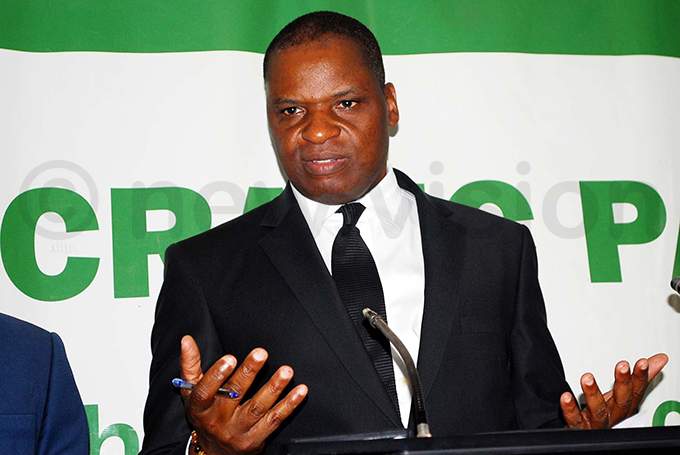DP calls for review of Mulago women's hospital fees
The party argues that majority of Ugandans cannot afford to seek medical treatment abroad and that the facility was supposed to be a relief for many
The Democratic Party (DP) has expressed concern over the medical fees set by government for the newly commissioned 450 capacity specialised women and neonatal hospital that was recently opened to the public.
DP now wants Parliament to intervene and force the government to reconsider the medical fees arguing that the intended purpose of the hospital which is to reduce the maternal mortality rate from the current 336 deaths per 100,000 live births to near the global average of 216 deaths per 100,000 live births, may not be realised.
The facility which has been under construction since 2015, is aimed at decongesting Mulago National Referral Hospital.
With nine floors, the hospital which will offer specialised care to neonatal related ailments, is part of the loan component passed by Parliament that saw the construction of Kiruddu and Kawempe hospitals as part of the government's scheme to decongest Mulago Hospital.
"DP calls upon Parliament to intervene and either reduce the medical charges or scrap them, to enable all Ugandans seek medical treatment. This is a public facility established to serve the vulnerable in society, these charges are very exorbitant to most Ugandans who on average earn less than sh450,000 monthly," said Kenneth Kakande, the DP spokesperson.
 DP's Kenneth Paul Kakande said Parliament's intervention is needed to address the issue of pricing. Photo by Lawrence Mulondo
DP's Kenneth Paul Kakande said Parliament's intervention is needed to address the issue of pricing. Photo by Lawrence Mulondo
Last week, government released a list of charges in local currencies at the facility which include, for inpatients, sh70,000 will be charged on neonatal follow-up per visit/immunisation, while sh80,000 will be charged for accommodation per day (also includes food, utilities, linen).
Tracheo-oesophageal fistula repair will cost sh4.5m, consultation fee per visit sh50,000, SVD (normal delivery) sh800,000, caesarean section sh2m, abdominal surgery sh2.5m, while total abdominal hysterectomy also costs sh2.5m.
Nurses or doctor care will cost sh100,000 while hysteroscopy (uterus test) will cost sh1.5m, laparoscopy at sh1.5m, labour with analgesia at sh1.6m, while cervical cerclage will cost sh250,000, among others.
The acting party secretary general, Gerald Siranda, said majority of Ugandans cannot afford to seek medical treatment abroad and that the facility was supposed to be a relief for many.
According to the health minister, Dr Jane Ruth Aceng, the combination of a fast-rising population and high fertility rate had seen the number of births handled by Mulago Hospital increase from 20,000 in the year 2000 to 33,000 in 2011.
The construction of the new facility cost $25.1m (about sh96b).
"At the same time, the infrastructure had undergone wear and tear and renovation would not support the huge numbers," Aceng told Parliament recently.
She told lawmakers the new facility has acquired modern specialised equipment, ranging from chemistry analysers, DNA, haematology and imaging at $8m. The loan was also used to offer specialised training in neonatal services, where gaps were evident among the current employees in the ministry.
Aceng also said the new hospital was not "a walk-in facility", meaning that one will require a referral before accessing its services.
Although President Yoweri Museveni had indicated that services at the new facility would be offered to citizens free-of-charge until independence celebrations early next month, Aceng said that thereafter, those intending to use the facility will have to pay fees, estimated to be 60% of what individuals pay in private health facilities.
In order to fully operate the facility, Aceng said sh44b will be required and sh28b of that will come from non-tax revenue, which is expected to be collected from users of the facility.
The government intends to charge non-citizens 25% more than ordinary citizens, with the Office of the Prime Minister and United Nations agencies offering to foot bills incurred by refugees at the facility.